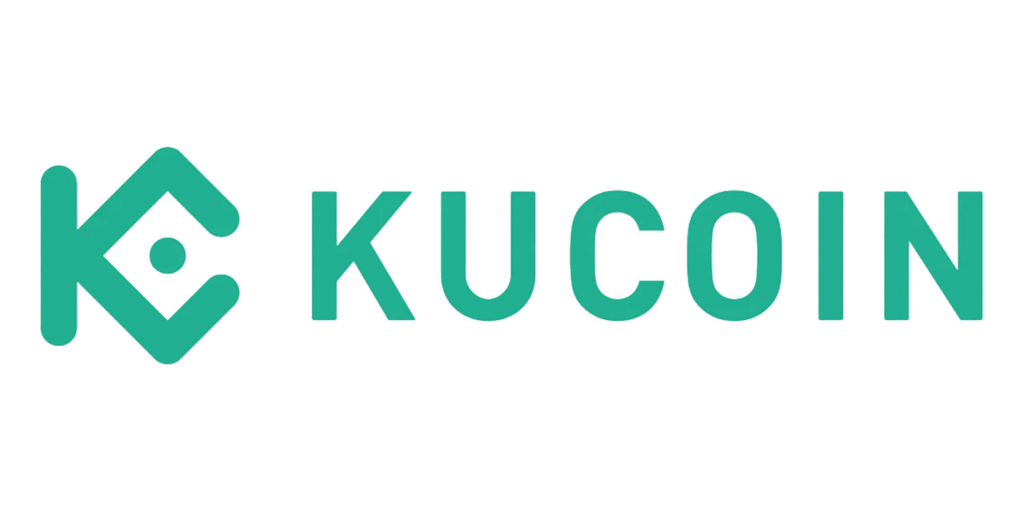Altcoin Exchange Guide
Altcoins have emerged as a vital element, providing significant growth potential due to lower market caps compared to Bitcoin. While Bitcoin needs billions of dollars to move the price up, altcoins can pump to the moon with very low volume.
Therefore, knowing the best altcoin crypto exchanges is crucial to your altcoin trading success.
We have tested over 100 cryptocurrency exchanges. In this guide, we will explore what altcoins are, what they are used for, and the exchanges that are best for crypto altcoin trading.
Our analysis considered all key factors including supported altcoins, trading fees, liquidity, ease of use, security, and more.
Top 7 Altcoin Exchanges Reviewed
Below you will find our ranking of the top 7 cryptocurrency exchanges for altcoin trading.
1. MEXC
2. Kucoin
3. Bitget
4. Gate.io
5. Bybit
6. Blofin
7. BYDFi
What is an Altcoin?
Altcoin, which is short for “alternative coins,” is any cryptocurrency that is not Bitcoin.
The term captures a diverse range of digital assets that have been developed following the creation of Bitcoin in 2009. The first altcoin was created in 2011 called Namecoin.
Following this new type of cryptocurrency, other notable altcoins began to emerge, including the likes of Ethereum, USDT, Solana, and thousands of others.
While Bitcoin paved the way for decentralized currencies, altcoins serve various purposes and introduce innovative features that cater to different use cases within the blockchain ecosystem.
Due to their vast nature and diverse use cases, altcoins come in different types. Here are a few common types of altcoins:
Meme coins
Memecoins have become a crypto sensation in the past few years for their form and value. What started as a joke with Dogecoin in 2013 has now become one of the biggest sources of attraction in crypto.
Memecoins are a blend of two words, “meme” and “coins.” These tokens simply derive their ideas from the memes or people that they are named after. Popular examples of meme coins include the MAGA token named after Donald Trump, Dogecoin named after a Japanese dog, Kabosu, and PEPE, named after Pepe the Frog.
Utility tokens
Utility tokens are a type of altcoins that provide services within a particular network, or in this case, within a blockchain. These services may include fee payment and earning rewards.
Unlike security tokens, which represent ownership in an asset or company, utility tokens do not confer any ownership rights to individuals.
Governance tokens
Governance tokens are cryptocurrencies that empower holders with voting rights to influence the direction of a project.
These tokens enable users to propose and vote on various initiatives related to the cryptocurrency or blockchain. This fosters a decentralized approach where decisions are made collectively rather than by a single governing body.
Stablecoins
Stablecoins are a popular type of altcoin and refer to tokens whose value is pegged to the price of another asset, providing stable prices in times of the crypto market’s high volatility.
The most common form of stablecoins are tokens whose value is pegged to the price of the US dollar (USD), such as Tether’s USDT and MakerDAO’s DAI.
What is an Altcoin Crypto Exchange?
An altcoin crypto exchange is a cryptocurrency exchange that specializes in offering the best altcoin trading experience. These exchanges usually have hundreds, if not thousands, of listed altcoins on their trading market.
Popular altcoin exchanges allow users to trade altcoins for other cryptocurrencies, usually against USDT. Some exchanges also allow users to earn interest on assets held in their accounts.
Altcoin exchanges can be centralized or decentralized, and each type offers different features and benefits. However, the best altcoin exchanges are currently centralized (CEX).
One of the most popular examples of centralized altcoin exchanges is MEXC, with over 2300 supported altcoins. Additionally, they charge fees of only 0.02%, making MEXC a top-tier crypto exchange for altcoin trading.
In contrast, Coinbase only offers 340 altcoins and charges fees of 0.1%, making Binance a rather poor choice when it comes to altcoin trading.
Understanding how these exchanges operate is crucial for anyone looking to engage with altcoins.
Different types of Altcoin Exchanges
There are two main types of exchanges where users can trade altcoins. These are centralized and decentralized exchanges.
Centralized Exchanges
Centralized exchanges (CEXs) are operated by a company and provide a user-friendly experience. They manage user accounts, provide security, and support fiat-to-crypto transactions, enabling a wide variety of altcoins due to their liquidity.
Popular examples of centralized altcoin crypto exchanges include MEXC, which offers users 2000 altcoins to trade and is known for its user-friendly interface. Another example of an altcoin exchange is Kucoin, which is known for its fast trading execution and has up to 800 altcoins for users to trade.
Decentralized Exchanges
Decentralized exchanges facilitate peer-to-peer trading without intermediaries, enhancing privacy and control over one’s assets. These exchanges operate on blockchain technology, allowing users to trade directly without intermediaries.
They leverage Automated Market Makers (AMMs) to manage trades, supporting numerous altcoins while providing lower fees and greater privacy.
Popular examples of decentralized exchanges include Uniswap, which supports hundreds of altcoins, allowing users to trade ERC-20 tokens directly from their wallets through liquidity pools.
Another example of a decentralized altcoin exchange is Hyperliquid, which is designed for low-fee trading.
Fees and Costs on Altcoin Exchanges
Each exchange has its fee structure, which may include trading fees, withdrawal fees, and deposit fees. It is vital to understand these costs to evaluate the overall profitability of trading on a given platform.
On crypto, fees are taken at a standardized rate, meaning that every exchange is expected to follow a particular fee range. However, due to differences in goals and efficiency, some exchanges may demand higher fees than others and vice versa.
The common fees that are taken on altcoin exchanges include:
Deposit fees
Deposit fees are charges incurred when adding funds to a crypto exchange account. Many exchanges offer free deposits for cryptocurrencies, while some may charge fees for fiat deposits, depending on the payment method.
- On-Chain Cryptocurrency deposits are usually free
- Crypto purchases via card incur a 1-1.5% fee
Trading Fees
Trading fees are charged for executing buy or sell orders. They often follow a tiered structure based on trading volume, with standard fees ranging from 0% to 1.5%. However, the fee structure may differ among exchanges.
- The best altcoin exchanges charge spot and futures fees equal to or lower than 0.1%
- Futures fees are usually cheaper than spot trading fees
Spreads
Spreads refer to the difference between the buying (ask) and selling (bid) prices of a cryptocurrency. A tighter spread indicates a more liquid market, while a wider spread can increase trading costs.
Spreads are more commonly issued by decentralized exchanges primarily due to their reliance on automated market makers (AMMs) and liquidity pools. The price of an asset may shift based on the available liquidity in the pool, leading to wider spreads, especially for less popular tokens.
On average, spreads are minimal, ranging from 0.0001% to 0.01%.
Slippage
Slippage is when the executed price differs from the expected price for an asset due to market fluctuations, particularly in volatile markets. High slippage can lead to unexpected losses, especially in large orders or low-liquidity situations.
Slippages are commonly charged on decentralized exchanges and can be significant due to lower liquidity and the nature of AMMs, which can lead to larger price discrepancies during trades.
When it comes to altcoin trading, it is notable that there is usually higher slippage due to lower liquidity compared to Bitcoin.
Withdrawal fees
Withdrawal fees are charged when users remove funds from their exchange accounts. Most exchanges impose a flat fee for crypto withdrawals, which can vary by asset and may also include additional charges based on the user’s country or the type of withdrawal option you choose to execute the transaction.
- Crypto withdrawal fees vary based on the selected network
- TRC20: 1 USDT
- SOL: ~$0.1
- ETH: ~$5 (or more depending on gwei)
How to Choose an Altcoin Exchange
Choosing an altcoin exchange may seem easy, but requires some careful observation to ensure you are getting the best services you desire. Here are some of the key factors to consider:
Supported assets
The number of supported assets that are available for trading, staking, or earning is crucial in selecting an altcoin exchange.
Aside from the more popular cryptocurrencies like Bitcoin and Ether, a wider range of token offerings allows users to pick between favorable markets in times of high volatility.
Fees
When picking an exchange, you need to prioritize the platform’s fee structure to ensure you get the best offer.
Fees generally may differ among the exchanges you wish to join, but you should settle for the ones with much lower and transparent fees to avoid unnecessary costs.
Liquidity
Ensure to look out for the exchange’s liquidity. High liquidity ensures that traders can execute orders quickly without significant price fluctuations. This is vital for both centralized and decentralized exchanges, as it affects the overall trading experience.
Deposit and payment methods
Payment options are an important aspect of an exchange and should be treated as a priority when making your pick.
Low fees enhance cost efficiency, allowing users to retain more of their investment capital and improve profit margins.
Selecting an exchange with a favorable fee structure can enhance trading efficiency and profitability, while a bad choice can lead to unnecessary costs and hinder trading activities.
KYC
Another important factor for choosing an exchange should be its Know-your-customer (KYC) feature. Although decentralized exchanges often prioritize anonymity among traders, with centralized exchanges, KYC should not be overlooked.
KYC helps exchanges to record the identity of their customers per anti-money laundering laws that govern their operations. Through this verification process, an exchange prevents bad actors from performing illegal activities on the platform.
Security
Security is the foundation for trust in a crypto exchange. Without it, an exchange should not be considered for users to join.
Security should be a top priority when choosing an exchange. Look for features such as two-factor authentication (2FA) and cold storage to protect your digital assets.
Additionally, you can research an exchange’s security practices and any past security breaches to gauge its reliability. This includes checking an exchange’s reviews to gain insight into its long-term safety.
Bottom Line
Altcoins play a crucial role in the cryptocurrency ecosystem, offering diverse opportunities for investment and innovation.
By familiarizing yourself with altcoin exchanges and understanding their functionalities, you can better navigate the complex world of cryptocurrencies and make informed decisions.
Whether you’re a seasoned trader or a newcomer, deepening your knowledge about altcoins and their exchanges can enhance your crypto experience.
FAQS
What is considered an altcoin?
An altcoin is any cryptocurrency token that is not Bitcoin. These tokens derive their name from the words “alternative” and “coin,” which means they are seen as alternative tokens to BTC.
What are altcoin examples?
There are thousands of altcoins in the crypto market today, with popular examples including Ethereum (ETH), Solana (SOL), Ripple (XRP), Toncoin (TON), and Dogecoin (DOGE).
Which is better, Bitcoin or altcoins?
Bitcoin is a cryptocurrency that was built as an alternative to fiat currency and is only used in transactions. Altcoins can serve different purposes, from governance on a blockchain to earning or staking rewards and much more.
Is altcoin trading safe?
Trading altcoins requires good market observance. That means users need to pick altcoins that are not highly volatile or have the tendency to be rug-pulled.
Can I trade altcoins on a decentralized exchange?
Yes, altcoins are tradable on decentralized exchanges. DEXs trade mostly altcoins. This means that based on the exchange, users can get access to hundreds or thousands of altcoins to trade.








